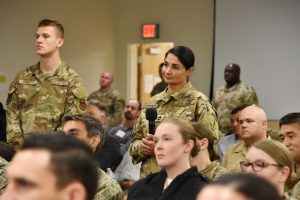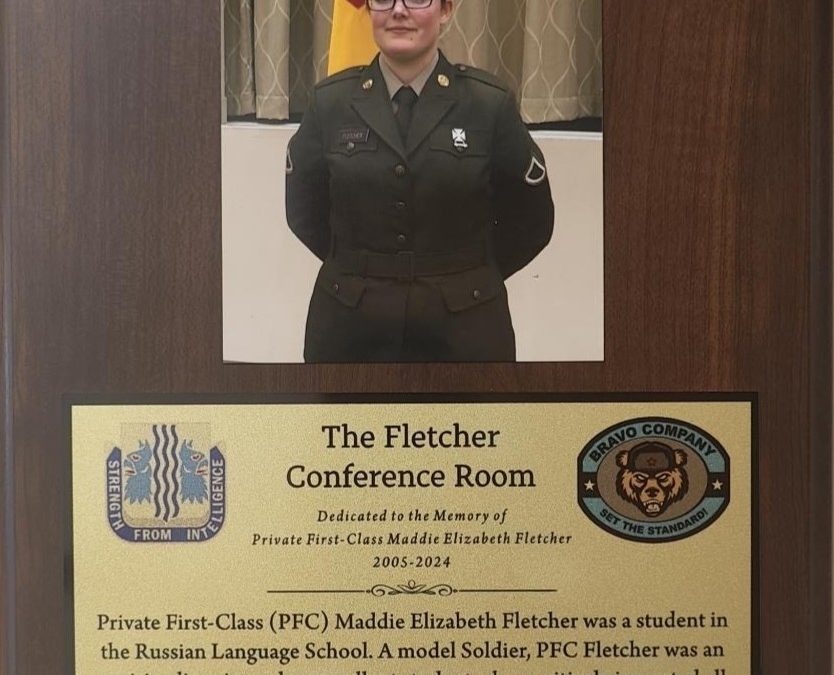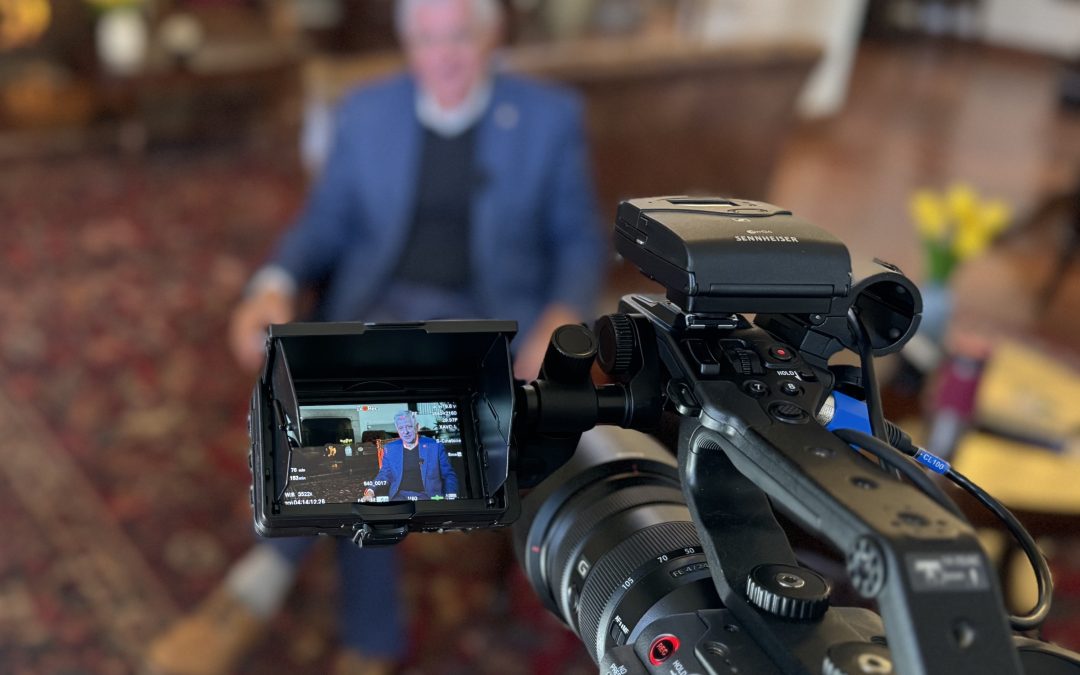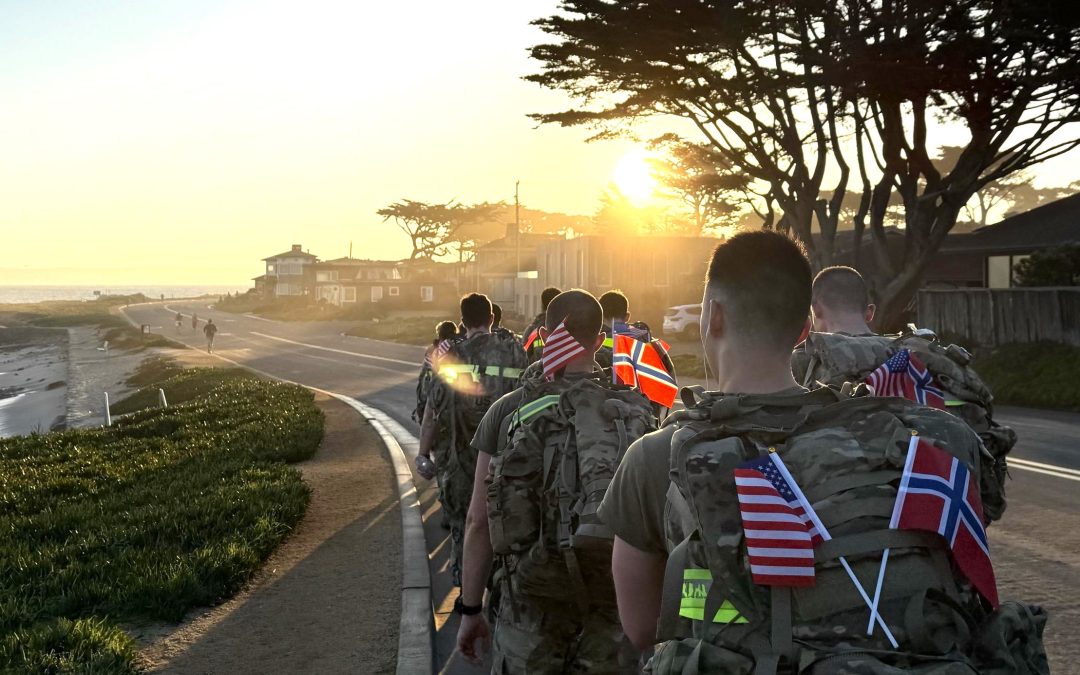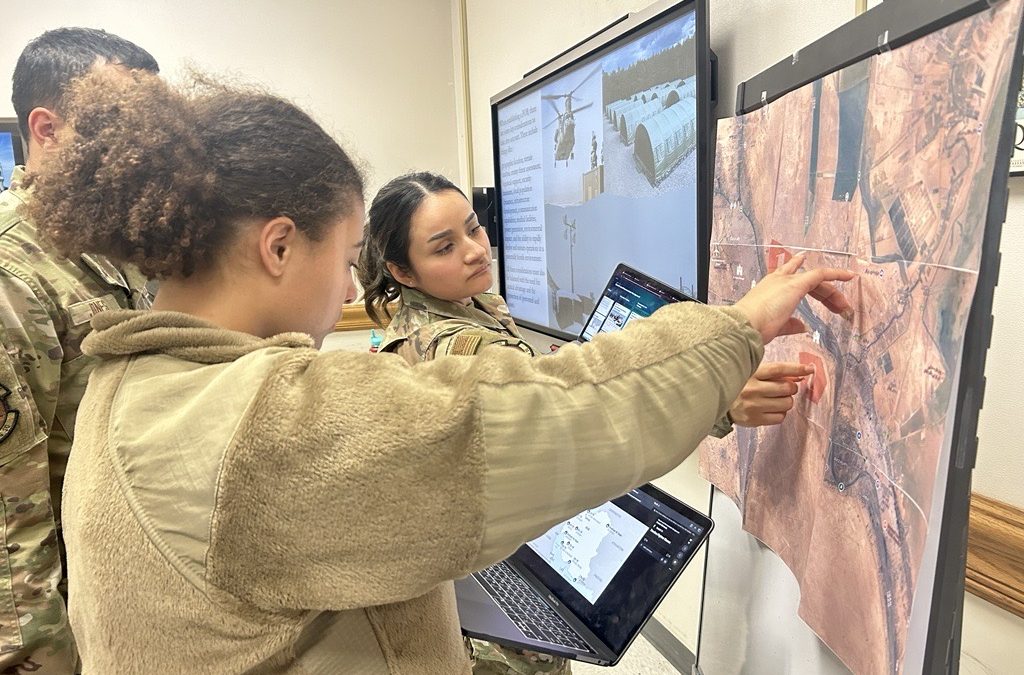When Spc. JoAnn Naumann enlisted in the Army, she just wanted to be a linguist, learn the Arabic language, get her clearance, and get out. Her story turned out to be much more interesting.
“The person you see here today is the result of a failed plan – but in an uncertain and changing world, success will often be the result of the ability to adapt,” said now U.S. Army Special Operations Command, Command Sgt. Maj. Naumann, to a full room of attendees at an annual workshop held by the Defense Language Institute Foreign Language Center Sept 12-14.
Every year, the Advanced Command Language Program Managers workshop is held at the Presidio of Monterey, to exchange lessons learned by each of the services on how to maintain military language analyst readiness and to participate in an award ceremony for the Department of Defense’s best foreign language program and professional of the year.
As keynote speaker, Naumann had good advice to impart upon nearly 300 CLPMs in attendance.
“Language is a perishable skill. It must be practiced frequently for maintenance and trained even more often for improvement,” said Naumann, referring to the CLPM job of managing linguist careers which entails providing regular time for them to study their target language.
“I would argue that your best linguists are equally as important [to complete the mission] … because we will need them most in a time of crisis,” stated Naumann.
Citing that language is a “living thing,” Naumann said that the most critical skill to understand a people and culture is to speak their language. She gave an example of sometimes not being able to directly translate a sentence but intuitively understood the significance.
During her career, Naumann went on 14 deployments and spent a lot of time in the Middle East in countries where she understood the language, but in many more where she did not.
“Everywhere I went, I experienced people. In my opinion, this is why language, regional expertise, and culture – as a trifecta – are so important in the military. Ultimately, conflict is always about people. A linguist can translate. But a linguist can also understand motivations… respect [the] culture and build relationships,” she said. “A linguist can guide strategy. None of these things are about memorizing vocabulary – that is only a foundation.”
Urging CLPMs to convince their leadership to give linguists time to study and therefore have a larger pool of highly competent analysts for future military challenges around the world, Naumann gave some parting advice. “Language cannot be the first thing to fall off the training calendar. You need to change that culture,” she said, regarding the omission of language training for perceivably more important tasks.
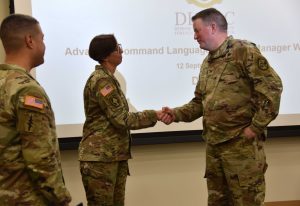
USASOC CSM JoAnn Naumann shakes hands with DLIFLC Commandant Col. James Kievit after her keynote address.
“As a military it is critical that we professionalize the linguists in our force. The one thing the military provided me, that no other organization could have, is purpose. We need to find ways to do that for all our linguists. You are a critical part of that effort,” she said.

